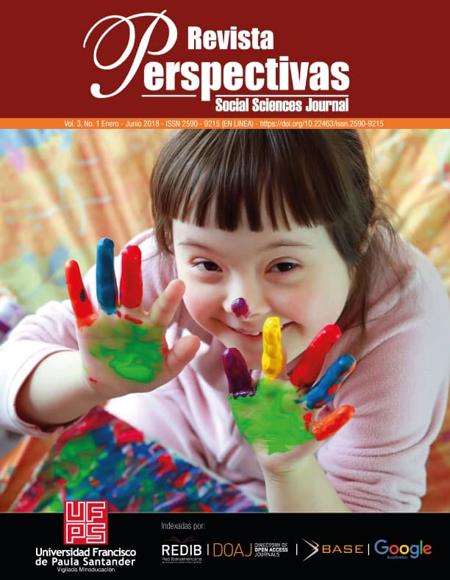Comprensión didáctica del currículo como espacio público
Comprensión didáctica del currículo como espacio público
Main Article Content
The present study, referred to the curricular dynamics of the XXI century in the Universidad Pedagógica Experimental Libertador (UPEL), in Venezuela, has the purpose of generating criteria for the didactic and contextual understanding of the curriculum as a public space in the institution as a contribution to integral management of the formative process of citizens, professionals and researchers and the distribution of power in the construction of the curricular design of the teaching career and related areas with a social, cultural, historical and ethical sense. The specific purposes have been: (a) to understand the curricular knowledge as intellectual production conditioned by the social context and the historical moment that UPEL lives, (b) to describe the process of legitimization of the curricular discourse when conceiving the curriculum as a public space, from the debate of the ideas and the contextual values present in the UPEL. The research is framed in the naturalist paradigm, under a qualitative approach, in a field, descriptive and documentary research modality. The interview and the content analysis are used as techniques and the interview script and the content analysis matrix as instruments. The results are analyzed qualitatively, applying the triangulation of sources to generate the guiding criteria for the didactic and contextual understanding of the curriculum as a public space, the product of research.
Downloads
Article Details
Becerra, A. (1974). La revolución científico-técnica y la revolución en la educación. Gaceta de Pedagogía, 24. Caracas: Instituto Pedagógico de Caracas.
Becerra, A. (2004) Thesaurus curricular universitario. Caracas: Sin publicar.
Brunner, J. (2014). Tendencias de la educación superior a nivel mundial.Centro de Políticas Comparadas en Educación. Ponencia, noviembre. UNESCO.
Fernández, B. (2006). Sistematización de la investigación ante la impunidad curricular y su impacto en la modernización y transformación del currículo. Ponencia presentada en XIII Jornada Anual de Investigación y IV Jornada de Postgrado. IPC-UPEL. Caracas, 30 de octubre hasta el 3 de noviembre.
Fernández, B. (2007). Sistematización de la investigación y su impacto en el currículo de formación docente. Vía para la integración en la Universidad Pedagógica Experimental Libertador. Ponencia presentada en la Semana Aniversario del Departamento de Curriculum y Administración. Cumaná: Universidad de Oriente.
Fernández, B. (2008).Papel de la pedagogía en el currículo. Instituto de Altos Estudios Diplomáticos .
Ministerio de Educación Cultura y Deportes. (2001).Políticas y estrategias para el desarrollo de la Educación Superior en Venezuela 2000-2006. Caracas: Publicaciones del Ministerio de Educación, Cultura y Deportes.
República Bolivariana de Venezuela (1999). Constitución. Caracas: Publicaciones de la Asamblea Nacional.
República Bolivariana de Venezuela. (2000). Ley Orgánica de Educación(2000).Caracas: Publicaciones de la Asamblea Nacional.
Universidad Pedagógica Experimental Libertador. (1996).Diseño Curricular. Documento Base. Caracas: Fondo Editorial de la Universidad Pedagógica Experimental Libertador.
Universidad Pedagógica Experimental Libertador. (2011). Documento Base del Currículo 2011. Caracas: Fondo Editorial de la Universidad Pedagógica Experimental Libertador.
Zemelman, H. (2006). El conocimiento como desafío posible. México D.F.: Instituto Politécnico Nacional. México.
Zemelman, H. (2011). El arte de pensar los maestros. El proceso de formación y la conciencia histórica en América. Cumaná: Universidad de Oriente.




 Perfil Google Scholar
Perfil Google Scholar



